Related Research Articles
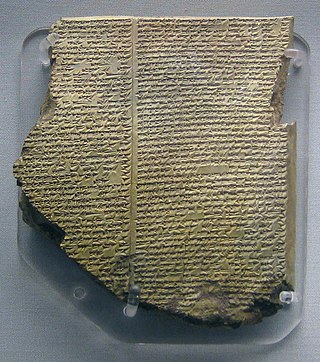
An epic poem, or simply an epic, is a lengthy narrative poem typically about the extraordinary deeds of extraordinary characters who, in dealings with gods or other superhuman forces, gave shape to the mortal universe for their descendants.

Rwanda is a landlocked country in the Great Rift Valley of Central Africa, where the African Great Lakes region and Southeast Africa converge. Located a few degrees south of the Equator, Rwanda is bordered by Uganda, Tanzania, Burundi, and the Democratic Republic of the Congo. It is highly elevated, giving it the soubriquet "land of a thousand hills", with its geography dominated by mountains in the west and savanna to the southeast, with numerous lakes throughout the country. The climate is temperate to subtropical, with two rainy seasons and two dry seasons each year. It is the most densely populated mainland African country; among countries larger than 10,000 km2, it is the fifth most densely populated country in the world. Its capital and largest city is Kigali.

Kigali is the capital and largest city of Rwanda. It is near the nation's geographic centre in a region of rolling hills, with a series of valleys and ridges joined by steep slopes. As a primate city, Kigali is a relatively new city. It has been Rwanda's economic, cultural, and transport hub since it was founded as an administrative outpost in 1907, and became the capital of the country at independence in 1962, shifting focus away from Huye.
Human occupation of Rwanda is thought to have begun shortly after the last ice age. By the 11th century, the inhabitants had organized into a number of kingdoms. In the 19th century, Mwami (king) Rwabugiri of the Kingdom of Rwanda conducted a decades-long process of military conquest and administrative consolidation that resulted in the kingdom coming to control most of what is now Rwanda. The colonial powers, Germany and Belgium, allied with the Rwandan court.

The Rwandan genocide, also known as the genocide against the Tutsi, occurred between 7 April and 15 July 1994 during the Rwandan Civil War. During this period of around 100 days, members of the Tutsi minority ethnic group, as well as some moderate Hutu and Twa, were killed by armed Hutu militias. Although the Constitution of Rwanda states that more than 1 million people perished in the genocide, the actual number of fatalities is unclear, and some estimates suggest that the real number killed was likely lower. The most widely accepted scholarly estimates are around 500,000 to 800,000 Tutsi deaths.
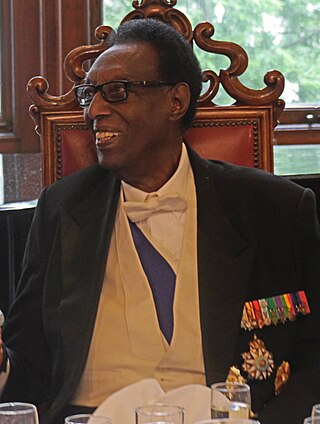
Kigeli V Ndahindurwa was the last ruling King (Mwami) of Rwanda, from 28 July 1959 until the end of the UN-mandate with Belgian administration and the declaration of an independent Republic of Rwanda 1 July 1962. On 25 September 1961, a referendum voted for the abolition of the Rwandan monarchy following the Rwandan Revolution.

Mutara III Rudahigwa was King (umwami) of Rwanda between 1931 and 1959. He was the first Rwandan king to be baptised, and Roman Catholicism took hold in Rwanda during his reign. His Christian names were Charles Léon Pierre, and he is sometimes referred to as Charles Mutara III Rudahigwa.

Kigeli IV Rwabugiri was the king (mwami) of the Kingdom of Rwanda in the mid-nineteenth century. He was among the last Nyiginya kings in a ruling dynasty that had traced their lineage back four centuries to Gihanga, the first 'historical' king of Rwanda whose exploits are celebrated in oral chronicles. He was a Tutsi with the birth name Sezisoni Rwabugiri. He was the first king in Rwanda's history to come into contact with Europeans. He established an army equipped with guns he obtained from Germans and prohibited most foreigners, especially Arabs, from entering his kingdom.
The Banyarwanda are a Bantu ethnolinguistic supraethnicity. The Banyarwanda are also minorities in neighboring Burundi, DR Congo, Uganda, Tanzania

The cuisine of Rwanda is based on local staple foods produced by the traditional subsistence-level agriculture and has historically varied across different areas.

The Rwandan Revolution, also known as the Hutu Revolution, Social Revolution, or Wind of Destruction, was a period of ethnic violence in Rwanda from 1959 to 1961 between the Hutu and the Tutsi, two of the three ethnic groups in Rwanda. The revolution saw the country transition from a Tutsi monarchy under Belgian colonial authority to an independent Hutu-dominated republic.

The culture of Rwanda is varied. Unlike many other countries in Africa, Rwanda has been a unified state since precolonial times, populated by the Banyarwanda people who share a single language and cultural heritage. Eleven regular national holidays are observed throughout the year, with others occasionally inserted by the government.

Nyamata is a town in the Bugesera District, southeastern Rwanda. Nyamata literally means 'place of milk' from the two Kinyarwanda words nya- 'of' and amata 'milk'. It is the location of the Nyamata Genocide Memorial, commemorating the Rwandan genocide of 1994.
Gihanga I is a Rwandan cultural hero described in oral histories as an ancient king popularly credited with establishing the ancient Kingdom of Rwanda. Gihanga descended from a line of Nyiginya headed by Kigwa and introduced foundational elements of the African Great Lakes civilization, including fire, cattle, metalworking, hunting, woodworking, and pottery. He was described as possessing talents in leadership, technology, and spirituality. It is said that Gihanga ruled Rwanda from his palace in the forest of Buhanga, an area that retained its forbidden and sacred status through the period of colonialism until the new government of Paul Kagame opened it to the public in 2004. No tangible evidence exists - apart from oral myths - to indicate that Gihanga lived, although many Rwandans believe that he once lived.
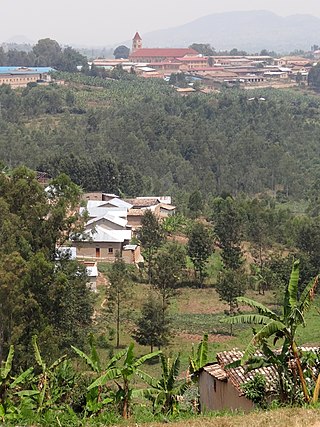
Kabgayi is just south of Gitarama in Muhanga District, Southern Province, Rwanda, 25 miles (40 km) southwest of Kigali. It was established as a Catholic Church mission in 1905. It became the center for the Roman Catholic Church in Rwanda and is the site of the oldest cathedral in the country and of Catholic seminaries, schools and a hospital. The church at first supported the Tutsi ruling elite, but later backed the Hutu majority. During the 1994 Rwandan genocide thousands of Tutsis who had taken refuge here were killed. Some survivors admire the courage of many priests who helped them during those difficult days, like Father Evergiste RUKEBESHA and many others. Later, some Hutus including three bishops and many priests were killed by the rebels RPF soldiers. A mass grave beside the hospital is marked by a memorial. Inside the Basilica are kept the bodies of the three bishops killed by FPR rebels. Two of them were refused by the Rwandan government to be transferred in their own cathedrals.
Lake Mugesera is a lake in the Eastern Province, Rwanda.
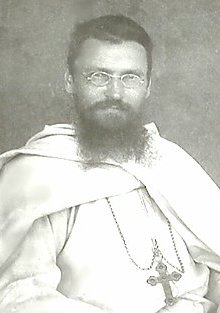
John Joseph Hirth was a Catholic bishop in German East Africa, known as the founder of the church in Rwanda.
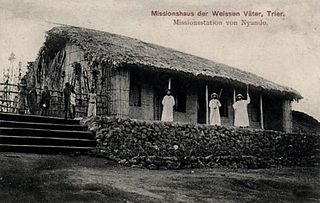
Nyundo is a community in the Rubavu District of Western Province, Rwanda, on the Sebeya River to the east of Gisenyi. It is the location of one of the first Catholic missions to be established in Rwanda, and today is the headquarters of the Roman Catholic Diocese of Nyundo.
The Abiru are the members of the privy council of the monarchy of Rwanda. They emanate from the earliest pre-colonial Rwandan traditions, and are tied to the monarchy's mythic origins. Due to the mythopoetic nature of accounts of the early history of the Abiru and the Rwandan monarchy, an accurate history of the Abiru is difficult to codify or study.
Charles-Henri-Joseph Voisin was a Belgian lawyer and colonial administrator. He served as attorney general of the Belgian Congo, then as governor of the mandated territories of Ruanda-Urundi. He deposed the traditional king of Ruanda and replaced him by the king's son.
References
- Adekunle, Julius (2007). Culture and Customs of Rwanda. Westport, CT: Greenwood Publishing Group. ISBN 9780313331770.
- African and Afro-American Studies and Research Center (1997). Research in African Literatures. University of Texas.
- Ethnic Studies Department (1996). Wihogora Rwanda: an international journal of the Rwanda genocide survivors. California State University at Sacramento.
- Finnegan, Ruth (September 2012). Oral Literature in Africa. Open Book Publishers. p. 207. ISBN 978-1-906924-70-6.
- Gansemans, Jos (1 January 1988). Les instruments de musique du Rwanda: étude ethnomusicologique (in French). Leuven University Press. ISBN 978-90-6186-276-5.
- Linden, Ian; Linden, Jane (1999). Christianisme et pouvoirs au Rwanda (1900–1990) (in French). KARTHALA Editions. ISBN 978-2-86537-918-7.
- Maalu-Bungi (2006). Littérature Orale Africaine: Nature, Genres, Caractéristiques et Fonctions (in French). Peter Lang. ISBN 978-90-5201-319-0.
- Streissguth, Thomas (15 December 2007). Rwanda in Pictures. Twenty-First Century Books. ISBN 978-0-8225-8570-1.
- Twagilimana, Aimable (1 January 1997). Hutu and Tutsi . The Rosen Publishing Group. p. 24. ISBN 978-0-8239-1999-4.